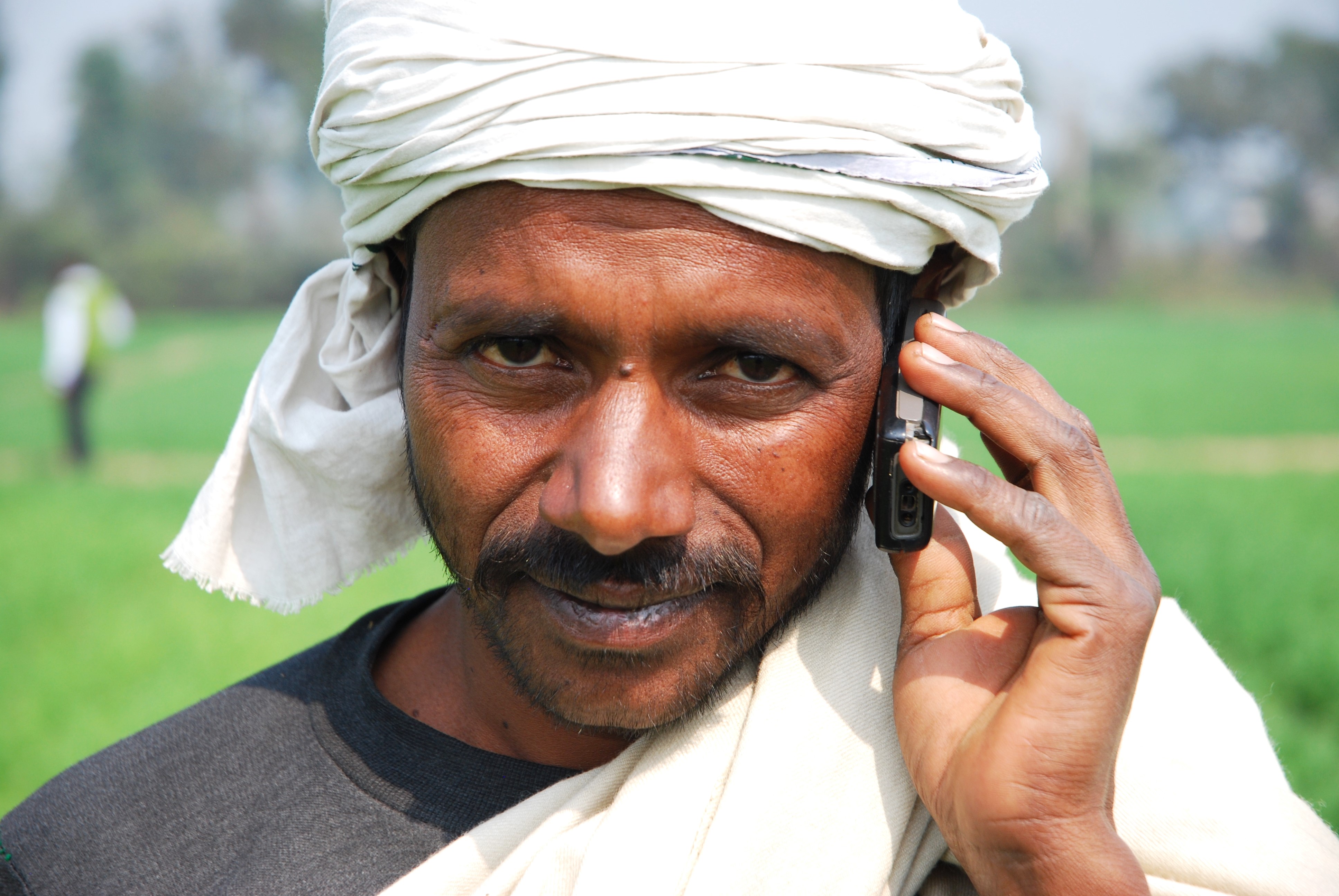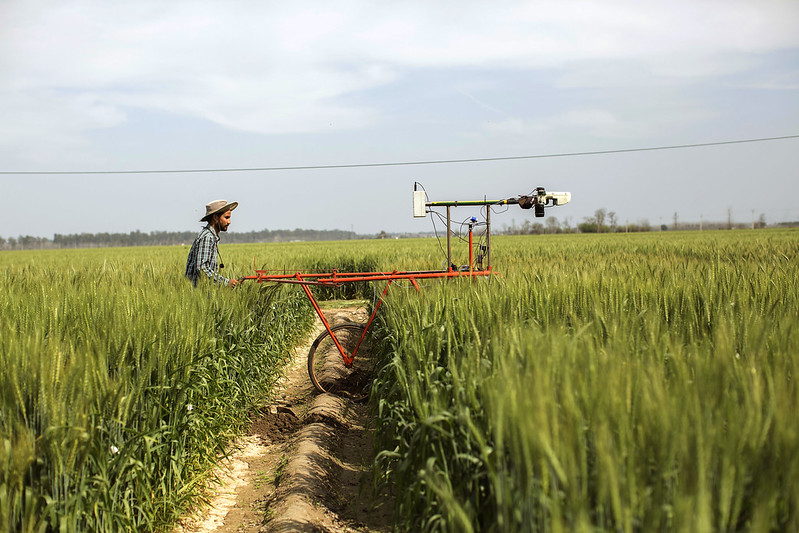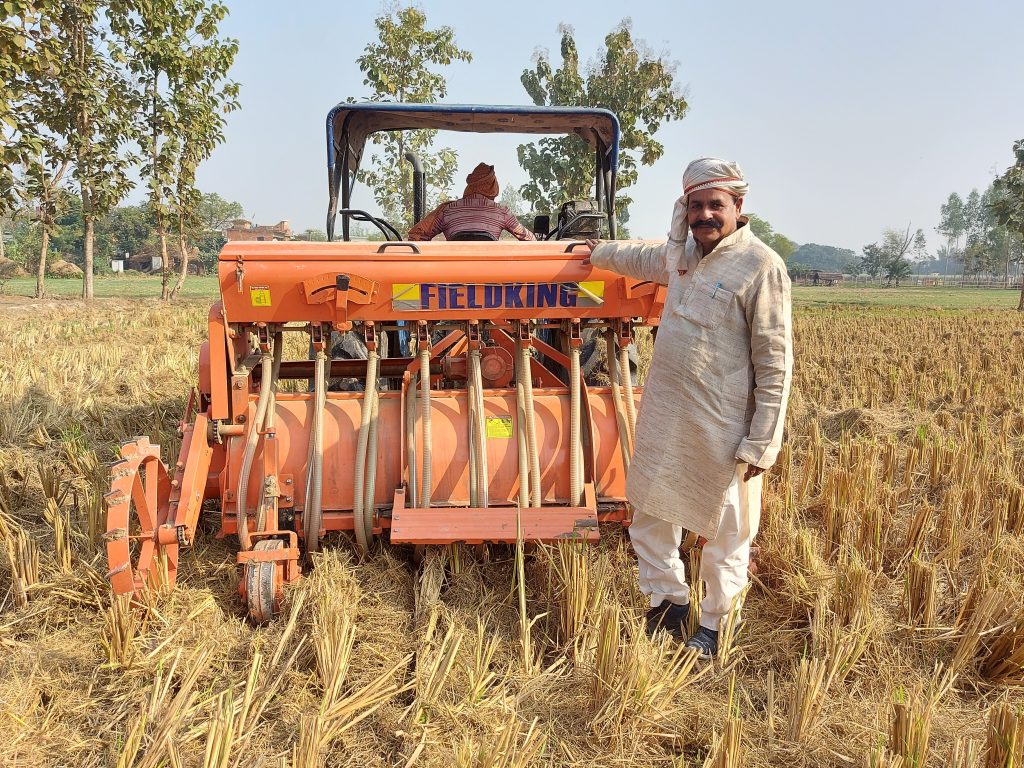
The agricultural sector is possibly the largest livelihood provider in India, with the smallholder farming community in the vast Indo-Gangetic Plains making the bulk of it. They are the community responsible for growing the food available on our table. In celebration of India’s National Farmer’s Day on December 23 — known in Hindi as Kisan Diwas — we share the story of a farmer-turned-entrepreneur from eastern Uttar Pradesh, where the International Maize and Wheat Improvement Center (CIMMYT) and its partners have invested in supporting smallholder farmers to implement best farming practices and improve yields through sustainable intensification.
“I am a farmer and I am hopeful of a future for my children in the farming sector,” says Surender Prasad, a 52-year-old farmer from Umila village in Santkabir Nagar district, Uttar Pradesh. Prasad is one of the innovative farmers in and around the district who has time and again strived to introduce new implements and technologies on his farm — often a big risk for smallholders like him.
In 2014, Prasad met researchers from CIMMYT’s Cereal Systems Initiative for South Asia (CSISA) project while visiting the village Lazar Mahadeva during an inter-district traveling seminar. After seeing the farmer demonstration plots for himself — which, incidentally, is one of the best ways of raising farmer awareness in the region — Prasad was convinced of the efficiency of transplanting rice by machine and using zero tillage in wheat production.
Through his continued association with the project, Prasad has now adopted both practices, in addition to direct seeded rice (DSR) and Laser Land Levelling. With a single 35 horsepower tractor, cultivator and harrow, Prasad was able to improve his wheat grain yield by one ton per hectare during the 2014-15 cropping season, and secure improved profit margins as a result.
Encouraged by these results, in 2018 Prasad purchased a 55 horsepower New Holland Tractor, a Happy Seeder, a tractor-mounted sprayer and other machinery for custom hire under the state government’s machinery bank scheme. His aspiration for entrepreneurship grew in the months following these purchases and he has since established himself as a local service provider, alongside his role as a farmer. According to Prasad, his continued association with CSISA and its network of partners helped him gain better technical knowledge and skills as well as confidence with using conservation agriculture-based machinery, thanks to trainings provided by the project team.
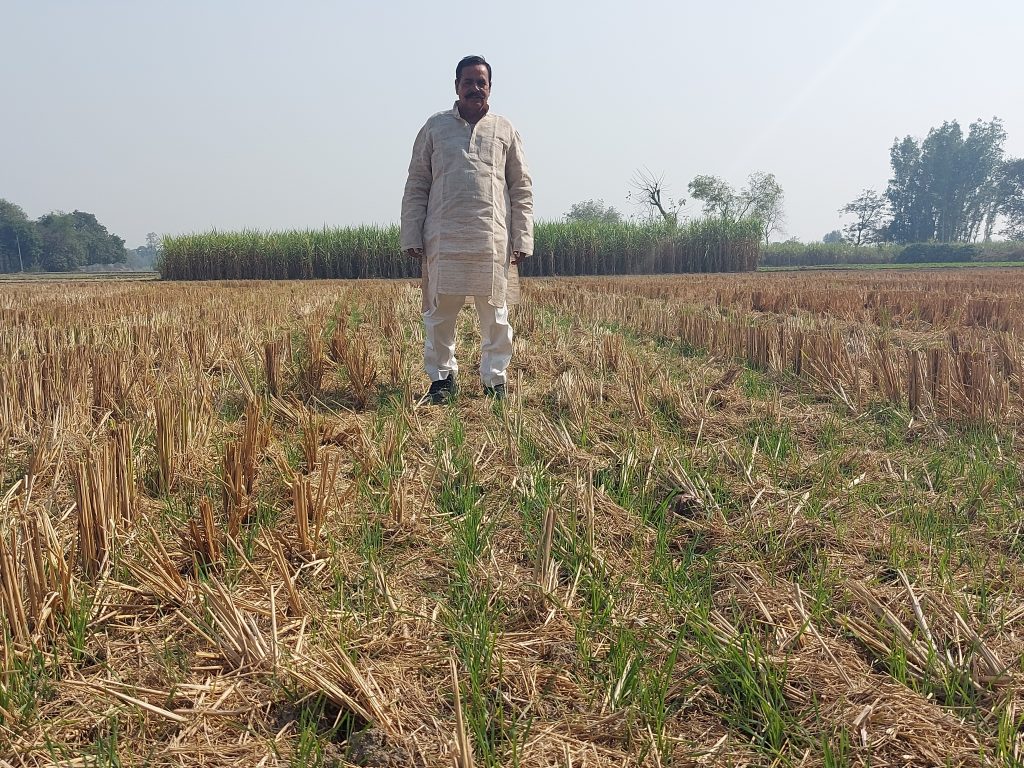
A budding entrepreneur
Today Prasad is an important entrepreneur in the region, providing custom hiring services for Happy Seeder and DSR and promoting agricultural mechanization in his community. Going forward, scale-appropriate farm mechanization will help farmers in the area to intensify their cropping system at a lower cost, supported by use of the conservation agriculture approaches encouraged by the CSISA project team, which have been shown to improve yields, reduce farmer costs and preserve natural resources. For example, using these best management practices Prasad was able to harvest an additional 1.1 tons of wheat from the 10 acres of land owned by him and his brother, and most farmers in his village now follow his crop management advice.
He is quick to adopt new ideas and has become something of an influencer in the area, earning him friends among the farming community and helping the CSISA team reach more farmers with new innovations.
This year the opportunity for hiring out mechanization services has been immense, largely due to the impact of the COVID-19 pandemic, which has created difficulties for farmers engaged in rice transplanting. As a result, Prasad managed to sow 90 acres of DSR on his own farm and in the nearby village, as well as seeding 105 acres of wheat in the fall 2020 season. “Thanks to mechanization we were far less affected by the COVID-19 disruptions and managed to plant rice and then wheat without much delay,” he explains. Prasad also provided tractor-mounted sprayer services for applying herbicides and insecticide on 90 acres of rice crop. Considering these successes, he has now planned to offer year-round extension services.
“I feel overwhelmed after serving my own community as a service provider,” says Prasad. “I feel proud of myself when other farmers come asking for my assistance.” Endorsing his contribution as an innovative farmer, the Department of Agriculture for the Government of Uttar Pradesh recognized him with awards in 2015 and 2019. He attributes his success to his exposure to CSISA interventions and support and believes that CSISA acted as a facilitator, encouraging him to use his ideas for his own benefit and for the benefit of the larger agrarian community around him.
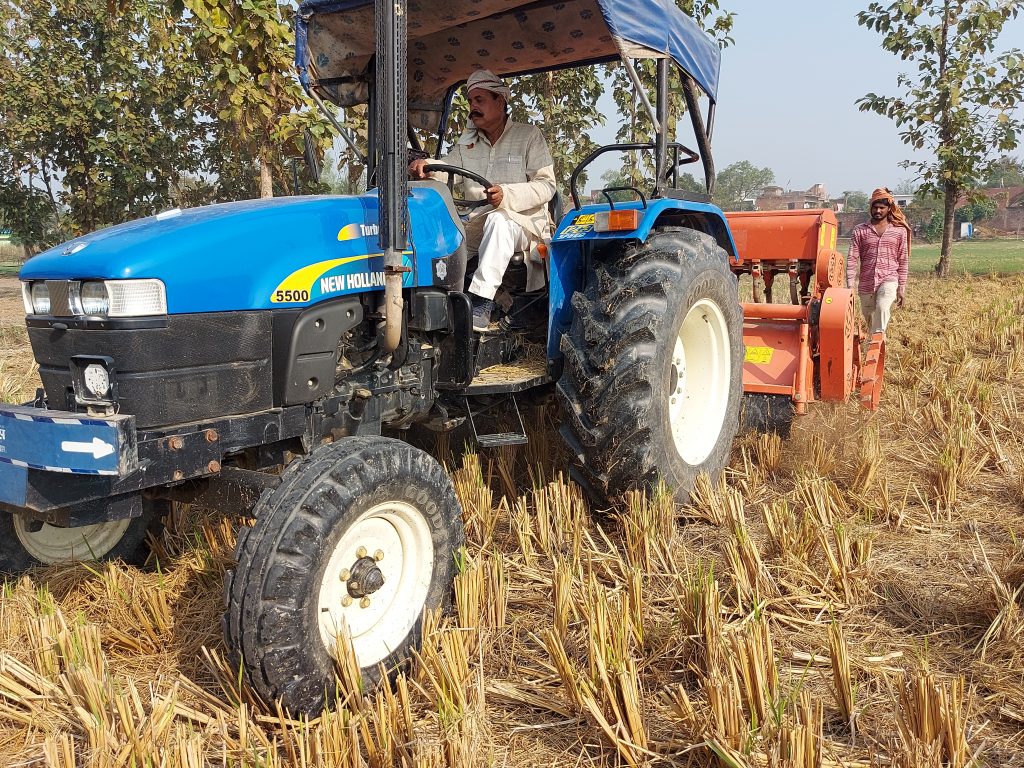

 Gender equality, youth and social inclusion
Gender equality, youth and social inclusion 